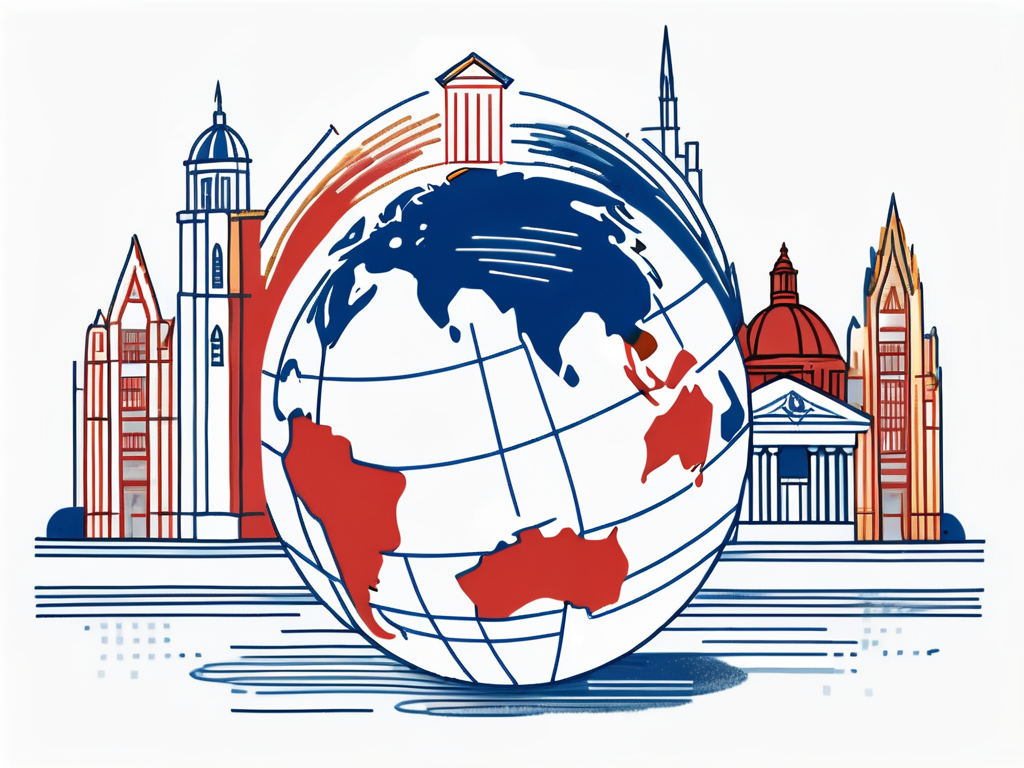
In the realm of academia, the term ‘Higher Degree’ often surfaces, particularly in the context of international education. This term, though seemingly straightforward, holds a myriad of implications and nuances that are integral to understanding the global education landscape. This glossary entry aims to unravel the complexities of the term ‘Higher Degree’ in international education, breaking down its various facets in an engaging and comprehensible manner.
International education, as a field, is a vast and diverse domain that encompasses a range of educational experiences and qualifications. Higher degrees, as a part of this, represent a significant segment of the international education spectrum. They are often pursued after the completion of undergraduate studies and include qualifications such as master’s degrees, doctoral degrees, and professional degrees.
Understanding Higher Degrees
Higher degrees, also known as postgraduate degrees, are advanced academic degrees that individuals pursue after completing their undergraduate studies. These degrees are often sought to specialise in a particular field, conduct research, or gain a competitive edge in the job market. They are a testament to an individual’s dedication to their chosen field, showcasing their ability to engage in rigorous academic study and contribute to the body of knowledge in their discipline.

Higher degrees can be broadly categorised into two types: taught degrees and research degrees. Taught degrees, such as Master’s degrees, involve a structured programme of study, including lectures, seminars, and assessments. Research degrees, such as PhDs, on the other hand, involve independent research under the guidance of a supervisor, culminating in a thesis or dissertation.
Types of Higher Degrees
The landscape of higher degrees is diverse, with a plethora of options available to students. The most common types of higher degrees include Master’s Degrees, Doctoral Degrees, and Professional Degrees. Master’s Degrees, such as the Master of Arts (MA) or Master of Science (MSc), typically require one to two years of full-time study. They allow students to specialise in a particular field, building on the knowledge gained during their undergraduate studies.
Doctoral Degrees, such as the Doctor of Philosophy (PhD), represent the highest level of academic achievement. They typically require three to four years of full-time study and involve conducting original research in a specific field. Professional Degrees, such as the Juris Doctor (JD) or Doctor of Medicine (MD), are designed to prepare students for a specific profession and often require practical training in addition to academic study.
Importance of Higher Degrees
Higher degrees play a crucial role in shaping the academic and professional trajectories of individuals. They provide students with the opportunity to delve deeper into their chosen field, acquire specialised knowledge, and develop advanced skills. This not only enhances their understanding of the discipline but also equips them with the tools necessary to contribute to the field in a meaningful way.
From a professional standpoint, higher degrees can significantly enhance career prospects. They are often viewed by employers as a testament to an individual’s commitment to their field, their ability to undertake complex tasks, and their capacity for critical thinking and problem-solving. As such, individuals with higher degrees often have access to a wider range of job opportunities and may command higher salaries compared to those with only an undergraduate degree.
International Education and Higher Degrees
International education refers to a range of educational experiences that occur outside of an individual’s home country. This can include studying abroad, participating in an international exchange programme, or pursuing a degree from a foreign institution. Higher degrees form a significant part of the international education landscape, with many students choosing to pursue their postgraduate studies in a foreign country.
The pursuit of higher degrees in an international context offers a host of benefits. It provides students with the opportunity to experience a different culture, learn a new language, and broaden their global perspective. Additionally, it allows them to access educational opportunities and resources that may not be available in their home country, thereby enhancing their academic experience.
Studying Higher Degrees Abroad
Studying for a higher degree abroad can be a transformative experience. It offers students the chance to immerse themselves in a new academic environment, engage with diverse perspectives, and develop a global network. This not only enriches their educational journey but also fosters personal growth and intercultural competence.
However, pursuing a higher degree abroad also comes with its challenges. These can include adjusting to a new education system, dealing with language barriers, and managing the financial implications of studying abroad. As such, it is important for students to thoroughly research and prepare for their international education journey to ensure a positive and rewarding experience.
International Recognition of Higher Degrees
The recognition of higher degrees across different countries is a crucial aspect of international education. This refers to the acceptance and validation of a degree obtained in one country by educational institutions and employers in another country. The recognition of higher degrees is essential for individuals seeking to study further or work in a foreign country.
However, the recognition of higher degrees can vary significantly from one country to another, depending on factors such as the country’s education system, the accreditation status of the institution awarding the degree, and the specific requirements of the profession or field of study. Therefore, it is important for students to ensure that their chosen degree will be recognised in their home country or the country where they intend to work.
Conclusion
In conclusion, higher degrees represent a significant segment of the international education landscape. They offer individuals the opportunity to advance their academic and professional trajectories, gain specialised knowledge, and contribute to their chosen field. The pursuit of higher degrees in an international context further enhances these benefits, offering a rich and diverse educational experience.
However, the pursuit of higher degrees, particularly in an international context, also requires careful consideration and preparation. From understanding the different types of higher degrees and their implications to navigating the complexities of studying abroad and ensuring international recognition of degrees, there is a wealth of factors to consider. As such, it is hoped that this glossary entry serves as a comprehensive guide to understanding the concept of ‘Higher Degree’ in international education.
Elevate Your Teaching Career with IPGCE
Ready to take your teaching career to the next level? IPGCE offers the International Postgraduate Certificate in Education, a transformative program designed to enhance your qualifications and connect you with a global network of educators. With our iPGCE, you can overcome the barriers of stringent qualification requirements, unlock new career progression opportunities, and gain a deep understanding of global education systems—all while balancing your professional development with existing work commitments. Join the UK’s #1 Teacher Training Course and experience a 50% increase in interview callbacks, a 45% boost in promotion rates, and a 30% salary increase. Don’t let isolation or limited advancement hold you back. Join our community and become part of the 90% who are satisfied with the comprehensive insights provided by the iPGCE, making you 65% more adaptable in the international education arena.
